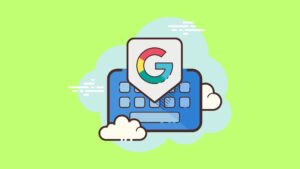In the ever-evolving landscape of online advertising, businesses continually seek innovative ways to reach their target audiences. One such innovation offered by Google is Auto-Suggest Ads. This powerful tool provides a unique paid advertising approach, offering advantages and potential pitfalls. Let’s delve into what Auto-Suggest Ads are, how they work, their benefits, and some considerations when implementing them as part of your local paid ad strategy.
Auto-Suggest Ads, also known as Google Auto-Suggest Paid Listings, is a form of advertising that ingeniously leverages Google’s search auto-suggest feature. You’ve likely encountered this feature while typing a search query into Google. As you type, a dropdown list of suggested searches appears. These suggestions are based on popular and relevant queries, helping users refine their search queries, and it’s where Auto-Suggest Ads come into play.
Auto-Suggest Ads place your ad within this list of suggested searches. When a user’s query aligns with your chosen keywords, your ad can appear as a relevant suggestion. The user can then click on your ad, instantly connecting them to your website or designated landing page. It’s advertising in real-time, precisely when users are actively seeking information or solutions.

Auto-Suggest Ads work by placing your ad within the list of suggested searches that appear as users’ type. When your ad aligns with a user’s search intent, it can appear as a relevant suggestion. Users can then click on your ad, leading them to your website or landing page. Auto-Suggest Ads thrive on capturing user intent. When a user starts typing a query, the auto-suggest feature generates suggestions based on the initial input. If your keywords match these suggestions, your ad becomes a candidate to appear.
To start, you would select a set of keywords that closely relate to your products or services. These keywords act as triggers, determining when your ad will appear. The content and quality of your ad play a pivotal role as Google prioritizes ads that are highly relevant to the user’s query. Your ad copy and visuals must align seamlessly with the suggested search. Competing advertisers will also be vying for this coveted space in the auto-suggest list so your bid strategy, which determines how much you’re willing to pay for a click, will affect your ad’s chances of appearing.
Auto-Suggest Ads offer a host of compelling advantages that make them a valuable addition to your paid advertising strategy. A huge plus is that your ad gains prime real estate at the top of Google’s search results page, allowing your company to be front and center when users are actively seeking relevant information, increasing visibility. Auto-Suggest Ads are inherently relevant, appearing precisely when users express intent through their queries, which often results in higher click-through rates (CTR) and more qualified leads. Being part of a user’s search journey increases brand exposure and reinforces your presence. You only pay when users click on your Auto-Suggest Ad, making it a cost-effective advertising strategy.
Auto-Suggest Ads offer a host of compelling advantages that make them a valuable addition to your paid advertising strategy however while Auto-Suggest Ads offer significant benefits, they also come with potential drawbacks. Unlike traditional search ads, you have limited control over where and when your Auto-Suggest Ad appears, as it entirely depends on user queries and depending on your industry and location. You may face fierce competition for ad placement in the auto-suggest list. The cost-per-click (CPC) for Auto-Suggest Ads can vary, so setting and monitoring your budget carefully is crucial, as high competition for certain keywords can drive up costs.
A massive consideration for any business contemplating this ad strategy is that the success of Auto-Suggest Ads hinges on relevance. An irrelevant ad can lead to wasted ad spend and a poor user experience. Your ad must align with users’ search intent to get the best results, as Google prioritizes ad quality and relevance. Also, your ad must be well-crafted and have a high-quality score to maintain a competitive position in the auto-suggest list. Effective management and regular optimization of your Auto-Suggest Ads are essential, so it is imperative to continuously monitor your campaign, which includes refining keywords, ad copy, and bidding strategies.
Auto-suggest ads can be valuable to a digital marketing strategy, but their suitability depends on your marketing objectives and goals. Here is some information on who this type of advertising is well-suited for and what results you can expect compared to traditional Google Ads or other paid marketing strategies.

Auto-Suggest Ads are particularly effective for businesses with a local or location-based focus. This advertising method can be highly effective if your primary goal is to attract customers within a specific geographic area, such as a local restaurant, dental clinic, or retail store. Local businesses often see excellent results with Auto-Suggest Ads and see an increase in local visibility and engagement. When you can place your ad in front of local users actively searching for nearby services, it can lead to a higher CTR and conversion rate than other advertising strategies.
Auto-Suggest Ads can be a cost-effective choice for businesses with limited advertising budgets. You have more control over your spending since you only pay when users click on your ad. While the cost-per-click can vary depending on competition, it can help you maximize the value of your budget. You can set daily or monthly spending limits to ensure you stay within your budget while benefiting from increased visibility and potential conversions.
If your marketing strategy highly emphasizes relevance and targeting users with strong intent, Auto-Suggest Ads are an excellent choice. These ads align closely with user queries, ensuring your message reaches those actively seeking your products or services. Users who click on Auto-Suggest Ads are often closer to purchasing, translating into more qualified leads and potential sales.
Auto-Suggest Ads can be strategically used for seasonal or trend-driven campaigns. For businesses in industries such as fashion, entertainment, or technology, where offerings change frequently, these ads can keep your promotions in front of users as they search for trending topics. This can help maintain visibility during specific periods of heightened interest, such as holiday seasons or product launches. While results can be favourable during these campaigns, monitoring and adjusting your strategies to remain relevant is crucial.
If reputation management is a priority for your brand, Auto-Suggest Ads can help you maintain control over the narrative. Addressing negative reviews or content through strategically placed ads can help shape the conversation around your brand. While these ads may not directly boost sales, they can help manage your brand’s online image. Expect to see results in terms of improved sentiment and perception.
Auto-suggest ads offer unique advantages, primarily in terms of relevance and cost-effectiveness, especially for local and intent-driven campaigns. However, it’s essential to recognize that their reach is limited to users actively searching on Google, while traditional Google Ads may have a broader reach. Comparing results to other paid strategies, such as Google Search Ads or Display Ads, will depend on your specific goals. Google Ads can provide a broader reach and may be better suited for brand awareness campaigns or industries with a wide target audience. Choosing Auto-Suggest Ads and other paid strategies should align with your marketing objectives and budget.
In summary, Google’s Auto-Suggest Ads can be a powerful tool for businesses with specific goals related to local visibility, user intent, and cost-effective advertising, presenting an exciting opportunity for them to connect with actively searching users. By capitalizing on relevant keyword suggestions, businesses can reach their target audience at precisely the right moment. By understanding their suitability and expected results in the context of your marketing strategy, you can make an informed decision about incorporating Auto-Suggest Ads into your digital advertising mix. However, it’s essential to approach Auto-Suggest Ads with careful planning, continuous monitoring, and commitment to relevance. When executed effectively, Auto-Suggest Ads can become a valuable component of your local paid advertising strategy, driving quality leads and expanding your brand’s reach. For businesses with a local focus, Auto-Suggest Ads can effectively reach local customers actively searching for your products or services.
We have provided expert PPC and Local SEO services for over a decade with outstanding results and would love to show you how we’ve helped our clients grow their business.